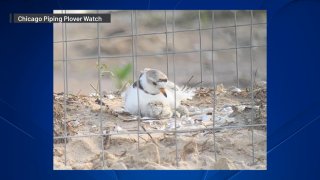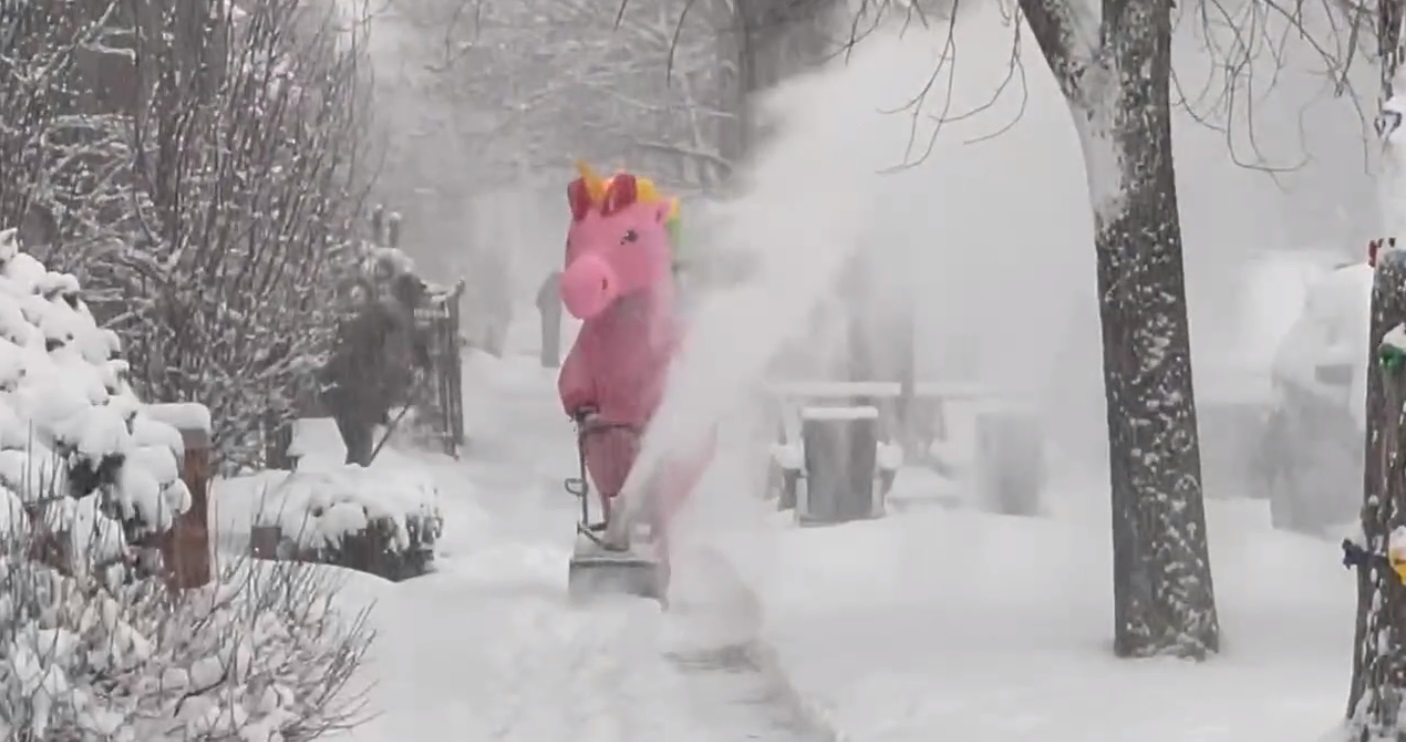
A second of four piping plover chicks at Montrose Beach has died, just days after the plumed family lost its first chick.
Monitors observed one of three surviving chicks in Imani and Sea Rocket’s nest behaving lethargic and struggling late Thursday, according to a statement from the Chicago Piping Plovers., a volunteer organization dedicated to protecting the endangered birds.
The chick was collected with permission from the U.S. Fish and Wildlife Service and taken to Lincoln Park Zoo, the organization said. There were no signs of external or internal injuries or illness on the chick. It was given oxygen, fluid and warmth but died during the night.
The death of the first chick was announced Wednesday. Monitors found the chick dead that day on the protected beach. A growth was noted on the side of its neck, and the chick was taken to Lincoln Park Zoo for necropsy.
“We mourn the passing of these two chicks who had endeared themselves to us for the ten short days they were with us,” the organization said.
The surviving chicks have been examined by a veterinarian and banded, the organization said. Both did not exhibit any signs of illness or injuries. A team of biologists from several agencies collected the two chicks Friday morning for examination and later released them.
They have since been observed roaming the beach with one parent and feeding, the organization said.
Local
Imani and Sea Rocket’s four eggs hatched June 30 and July 1, about a month after their first egg was found in a protected area of Montrose Beach.
Imani was hatched at Montrose Beach in 2021 to piping plovers Monty and Rose. Sea Rocket was a captive-reared chick released at the beach in July 2023.
Feeling out of the loop? We'll catch you up on the Chicago news you need to know. Sign up for the weekly Chicago Catch-Up newsletter.
Montrose Beach became a protected sanctuary in 2019, the same year the first piping plover chicks hatched in Illinois since they disappeared across the state in 1955.
The Great Lakes population of piping plovers is considered endangered. According to the U.S. National Park Service, there are currently 75 to 80 nesting pairs in the Great Lakes area.



